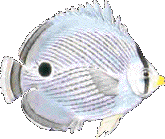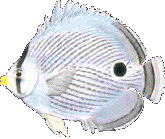
| Lectures, Exams, and Reading Assignments |
San Salvadore Field Trip |
 |
|
Geology 426 SEMINAR ON REEFS |
Spring 2002 Syllabus
| Instructor: | Dr. Constance M. Soja | Office: | Lathrop 306; x 7200 | |
| Seminar: | W 7-9:00 p.m.(L217) and Th 12:30-1:10 p.m. (L403) |
Office hours: | 8:30-9:30 a.m. T Th |
| Textbooks: | Sapp, J. 1999.
What is Natural? Coral Reef Crisis. Wood, R. 1999. Reef Evolution. (backordered; see reserve copies) (Optional: Spalding, M. et.al. 2001. World Atlas of Coral Reefs). |

| Lectures, Exams, and Reading Assignments |
San Salvadore Field Trip |
 |
The course grade will be determined as follows:
| 1. Seminar presentations | 25% |
| - Evaluation will be based on the three presentations you give during the semester about the research you and others have done using the primary literature and reliable web resources. I will assess the quality of the outline you prepare as a handout for each talk, debate, or review; content and relevance of information presented orally or as posters; timely appearance and selection of appropriate article(s) for course participants to read in advance; and list of references you provide. Please note that it is an expectation (=requirement) of this course that those giving presentations on Tuesday evenings will have made 2 copies of a relevant and appropriate research article available to non-presenters no later than the preceding Friday; those presenting on Thursday afternoons will have made their copies available no later than Monday. It is also an expectation that the articles will remain in the Paleo lab (Lathrop 403), except for short excursions to the xerox room, for the benefit of everyone. |
| 2. Research paper & symposium presentation | 25% |
| - Instead of a final, you will complete a research paper on a topic related to the course material and give an oral presentation to the class at the end of the semester (specific instructions will be made available at a later date). As with other assignments, the goal of this research is to encourage you to learn more about reefs while developing valuable thinking, writing, and speaking skills that will be critical in any career you choose to pursue. Papers will be graded on scientific content and accuracy, organization, and careful presentation of material. You are strongly encouraged to have one or more of your colleagues review and edit your paper before you hand it in. Careful proofreading will be critical as correct grammar and spelling, etc., will count most definitely in your favor when evaluating your paper! |
| 3. Detailed outline of final research paper | 10% |
| - Due shortly after spring break, this annotated, 2-paged, typed outline will ensure that you have at least a half-semester start on your final research topic. Please include a minimum of 5 non-web, current and up-to-date, primary references. Note that a hasty (e.g., shoddy) outline will have a negative impact on the final grade for your paper. |
| 4. Participation in discussions | 15% |
| - Active participation in discussions involving all aspects of the course is encouraged. Be prepared to ask and answer questions, debate issues, contribute information from assigned articles and individual research, offer opposing points of view, and generate opinions on discussion topics. |
| 5. Annotated bibliography of assigned readings | 15% |
|
- I will use an informal grading system to check your written notes of each week's
assigned articles: |
| 6. Response essay, peer interview, and Environmental Review assignment | 10% |
| - To emphasize the importance of making science accessible to the general public, each of you will compose a response essay to a reef video and also produce an informational article, poem, short story, play, interactive exercise (for school children or college students), video, etc. about reefs. Your goal is to craft something in a special, creative way that will educate the general public about the importance and value of reefs in human society. This will require you to extract and judiciously use information from everything you have learned in the first part of the semester, including interviews with your peers about their research. The class will decide which of these to submit for possible publication in Colgate's annual Environmental Review. |
| Back to 426 Main Page |
|
http://classes.colgate.edu/csoja/geol215 |